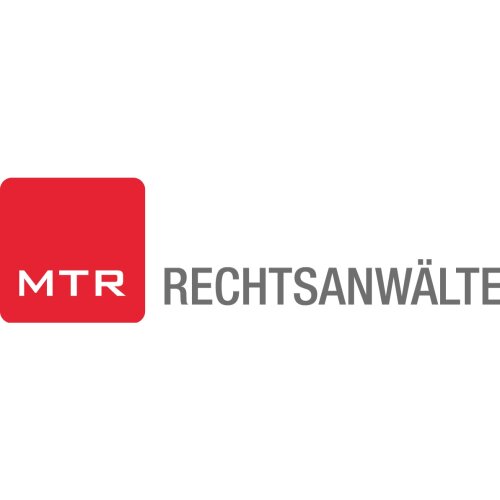Best Energy, Environment & ESG Lawyers in Hamburg
Share your needs with us, get contacted by law firms.
Free. Takes 2 min.
List of the best lawyers in Hamburg, Germany
About Energy, Environment & ESG Law in Hamburg, Germany
Energy, Environment & ESG (Environmental, Social, and Governance) law covers a broad range of legal frameworks that regulate how organizations, businesses, and individuals interact with the environment and society. In Hamburg, with its status as a major port city and Germany's green energy hub, these areas of law are particularly significant. The city is committed to sustainable development, energy transition, and climate protection. This means stricter regulations for industries, real estate developments, renewable energy projects, and corporate governance. Environmental protection, compliance with emissions standards, and adherence to ESG criteria play central roles in both public and private sector activities.
Why You May Need a Lawyer
Navigating Energy, Environment & ESG law can be challenging because of the complexity and frequent changes in regulations. Here are some common situations where legal assistance may be valuable:
- Setting up or expanding renewable energy projects, such as wind or solar farms
- Ensuring corporate compliance with ESG reporting standards
- Dealing with environmental permits, licenses, or violations
- Managing environmental impact assessments for construction or industrial projects
- Responding to regulatory inspections or audits
- Addressing concerns about emissions, waste management, or contamination
- Negotiating contracts related to energy supply and consumption
- Facing public or private disputes about environmental responsibility or sustainability claims
- Restructuring or acquiring businesses with environmental obligations
- Participating in public tenders or government initiatives for sustainable development
A lawyer specializing in these areas will help you understand your obligations, reduce legal risks, and achieve more sustainable outcomes.
Local Laws Overview
Hamburg operates under both German federal law and local state law, which together create a robust legal structure for Energy, Environment & ESG matters. Some key aspects include:
- Renewable Energy Law (EEG): Encourages the expansion of renewables, offers incentives, and sets targets for energy suppliers. Hamburg implements EEG at the city level, with a strong focus on wind power.
- Emissions Control: The Federal Immission Control Act and Hamburg-specific regulations limit air, noise, and water pollution, aiming to protect urban environments.
- Environmental Impact Assessments: Required for many projects before receiving approval, ensuring the effects on nature and humans are properly considered.
- Climate and Environmental Protection Laws: Hamburg has passed its own Climate Protection Law with ambitious goals for CO2 reduction and climate neutrality.
- Waste Management: Both public law and local regulations ensure responsible disposal of hazardous and non-hazardous waste.
- Building and Land Use: Laws influence how sites are developed, with strict rules for areas such as Hamburg’s waterfront and harbor.
- ESG Reporting: Companies, especially larger ones, must adhere to the EU Corporate Sustainability Reporting Directive (CSRD) and related German legislation.
Compliance with these laws is essential for individuals and businesses wishing to operate smoothly and sustainably in Hamburg.
Frequently Asked Questions
What is ESG, and why is it important for businesses in Hamburg?
ESG stands for Environmental, Social, and Governance. It refers to standards companies follow for environmental care, social responsibility, and corporate governance. Businesses in Hamburg must pay attention to ESG because of regulatory requirements, investor expectations, and the city’s emphasis on sustainability.
How do I get an environmental permit for a new project?
You must apply to relevant authorities, such as the Ministry for the Environment, Climate, Energy, and Agriculture of Hamburg. Your application will need to include details about potential impacts on the environment. It often requires an environmental impact assessment before approval.
Are there specific renewable energy incentives in Hamburg?
Yes, Hamburg supports several incentive programs for renewable energy, especially wind and solar. These can include financial subsidies, easier permitting processes, and partnerships for innovative energy projects.
How does Hamburg regulate industrial emissions?
Hamburg enforces strict emission standards under both federal and local law. Industrial operations must monitor and report emissions. Exceeding limits can result in fines, operational restrictions, or even facility closure.
Is waste management regulated differently in Hamburg than in other German states?
While general rules come from federal law, Hamburg authorizes specific local regulations, especially due to its port and industrial zones. Businesses must comply with these local requirements for sorting, transporting, and disposing of waste.
What are the penalties for violating environmental laws in Hamburg?
Penalties range from administrative fines to criminal charges, depending on the severity and intentionality of the infraction. Authorities may also order remediation measures or suspend business activities until compliance is restored.
Do I need to consider ESG criteria when selling a property in Hamburg?
ESG factors are increasingly relevant in real estate transactions. Buyers frequently request documentation about energy efficiency, environmental risks, and compliance history. Ignoring ESG considerations can reduce property value or lead to legal disputes.
What is the process for challenging an environmental decision made by Hamburg authorities?
You may challenge most administrative decisions through written objections or appeal proceedings. If necessary, you may file a claim with the administrative courts. Legal advice is highly recommended, as procedures are formal and time-limited.
Are ESG disclosures mandatory for all companies?
Not all companies must issue formal ESG disclosures, but requirements are increasing under EU and German law, especially for larger businesses or those listed on stock exchanges. Smaller companies may still face pressure from partners, investors, or the supply chain.
Who enforces energy, environment, and ESG regulations in Hamburg?
Mainly the Ministry for the Environment, Climate, Energy, and Agriculture of Hamburg, along with local environmental offices and federal agencies, enforce laws and ensure compliance.
Additional Resources
If you need more information about Energy, Environment & ESG in Hamburg, consider these resources:
- Hamburg Ministry for the Environment, Climate, Energy, and Agriculture
- Hamburg Chamber of Commerce (Handelskammer Hamburg)
- Agency for Economy, Innovation and Digitalization Hamburg
- German Federal Environment Agency (Umweltbundesamt)
- German Renewable Energy Federation (BEE)
- German Federal Network Agency (Bundesnetzagentur)
- Legal aid and advice centers in Hamburg
These organizations provide guidance, regulatory updates, and sometimes free initial advice for individuals and businesses.
Next Steps
If you believe you need legal assistance in the field of Energy, Environment & ESG in Hamburg, consider the following steps:
- Gather all relevant documents and information about your issue or project
- Contact a lawyer or law firm with specific experience in environmental, energy, or ESG law in Hamburg
- Request an initial consultation to understand your situation, obligations, and possible strategies
- Ask about potential costs, timelines, and outcomes before formalizing the engagement
- Stay informed by following updates from local regulatory agencies and trusted legal advisors
With the complex legal landscape in Hamburg, qualified legal support can help you meet your responsibilities, take advantage of opportunities, and avoid costly legal disputes.
Lawzana helps you find the best lawyers and law firms in Hamburg through a curated and pre-screened list of qualified legal professionals. Our platform offers rankings and detailed profiles of attorneys and law firms, allowing you to compare based on practice areas, including Energy, Environment & ESG, experience, and client feedback.
Each profile includes a description of the firm's areas of practice, client reviews, team members and partners, year of establishment, spoken languages, office locations, contact information, social media presence, and any published articles or resources. Most firms on our platform speak English and are experienced in both local and international legal matters.
Get a quote from top-rated law firms in Hamburg, Germany — quickly, securely, and without unnecessary hassle.
Disclaimer:
The information provided on this page is for general informational purposes only and does not constitute legal advice. While we strive to ensure the accuracy and relevance of the content, legal information may change over time, and interpretations of the law can vary. You should always consult with a qualified legal professional for advice specific to your situation.
We disclaim all liability for actions taken or not taken based on the content of this page. If you believe any information is incorrect or outdated, please contact us, and we will review and update it where appropriate.
Browse energy, environment & esg law firms by service in Hamburg, Germany
Hamburg, Germany Attorneys in related practice areas.












